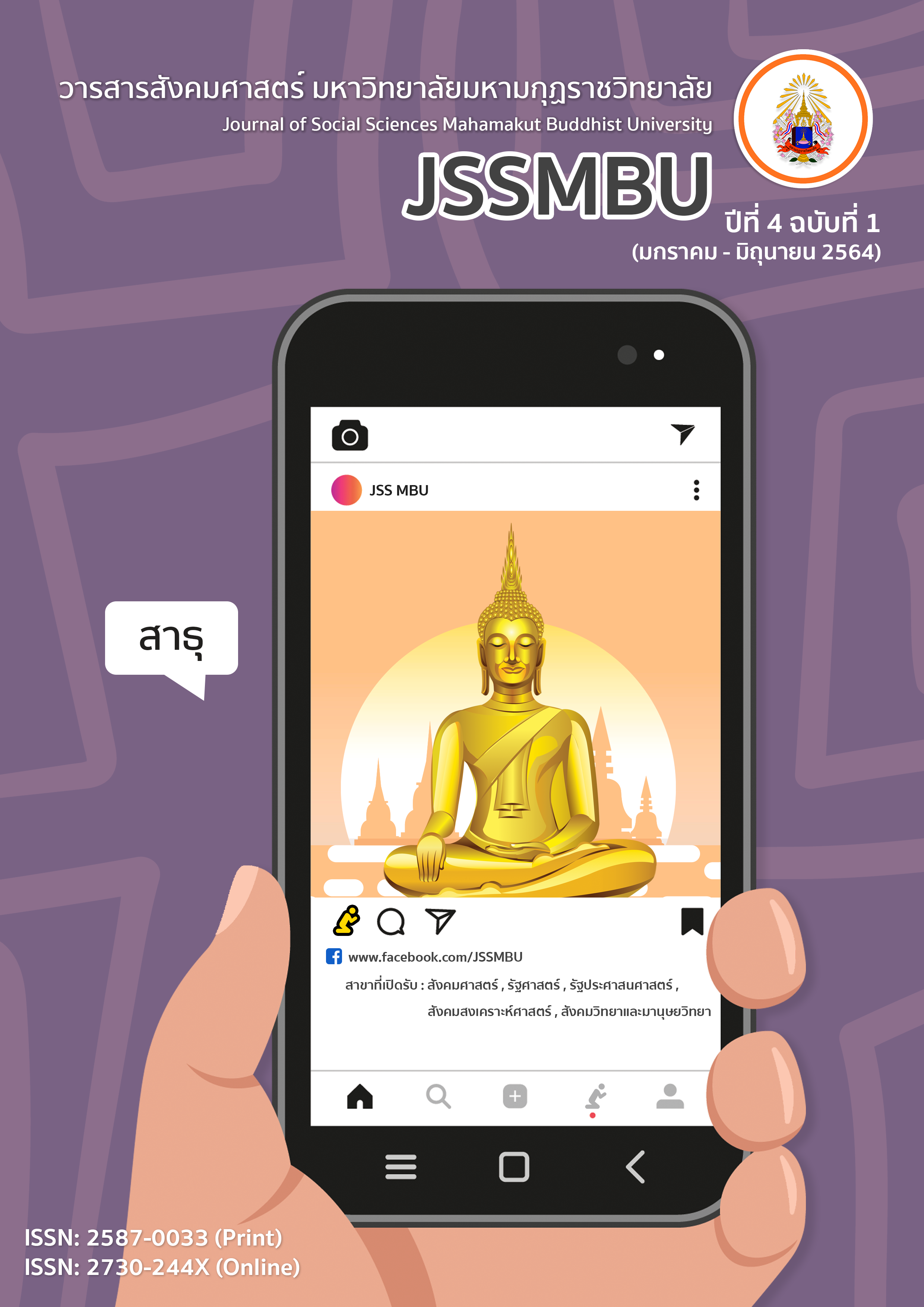Thai Monks' Adaptability in Indonesian Chinese Community
คำสำคัญ:
Indonesian Chinese, Dhammayutta missionary, ritual, social welfareบทคัดย่อ
This paper answers how Thai Buddhism adopted by Thai Dhammayutta missionaries (TDM) can respond to the need of Indonesian Chinese. Ethnographic methodology was conducted in Java for five months to observe various rituals as well as to interview many Indonesian informants. It found that Thai missionary monks in Indonesia successfully adapted religious rituals and worldly strategies to attract the Chinese patrons. Four main strategies were examples for this claim namely, (1) The simplicity and low price of Thai ritual, (2) Weekend houses in Thai temples, (3) Magazine for advertising the Chinese patrons’ products, and (4) Social welfare linking the Chinese and the Javanese. Simply put, this case study obviously shows the potential of Thai monks who can also survive in the new land though they are not surrounded by Thai communities as found in Europe and America. In addition, not only rituals are arranged to serve the Chinese’s need, but the teaching in the form of translated books are also distributed.





